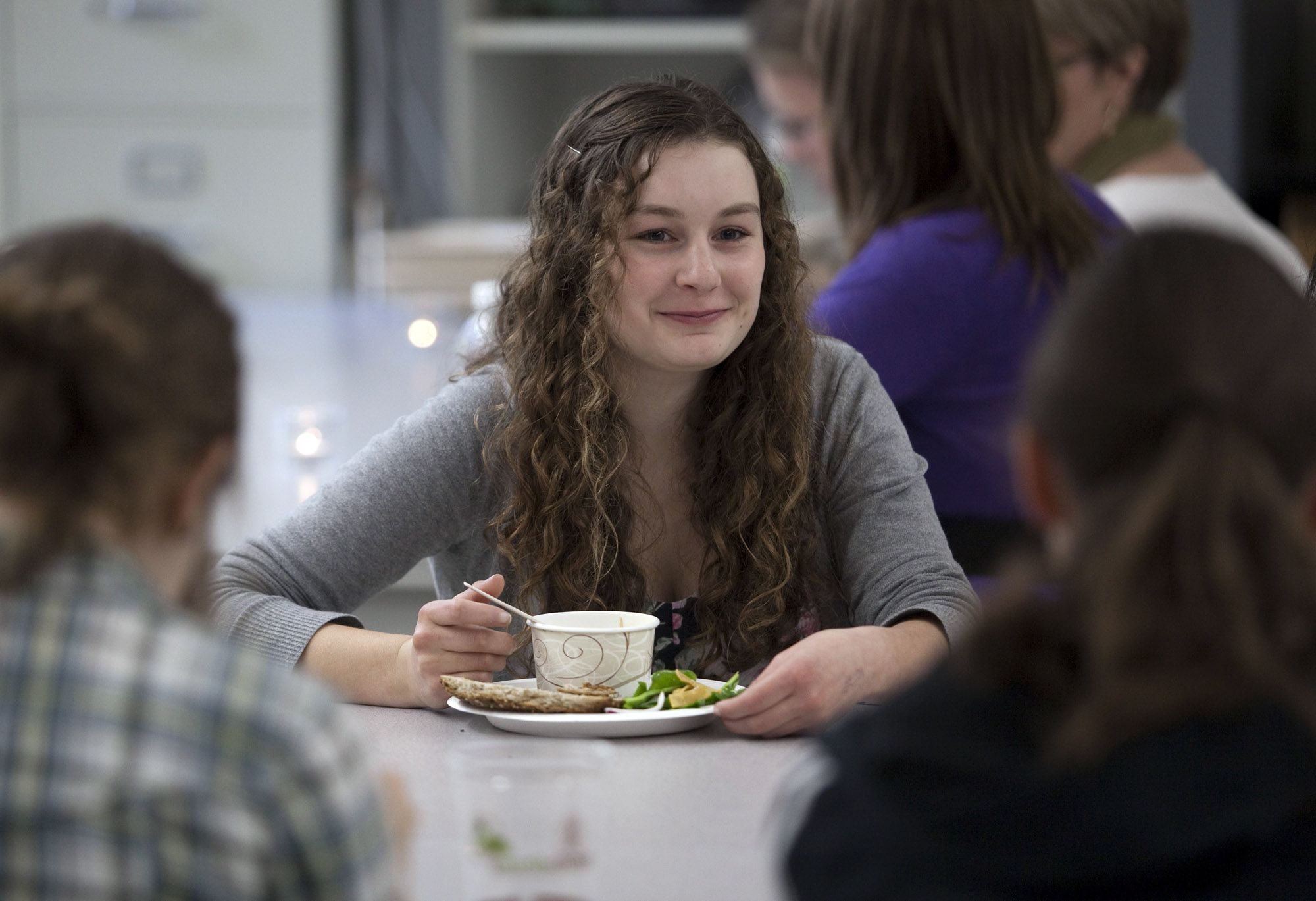At first glance, the menu at Vancouver School of Arts and Academics on Tuesday seemed like a typical school lunch menu: chicken and vegetable soup, a spinach salad and a slice of bread with butter.
But take a closer look and the meal is anything but the norm.
Nearly every ingredient used in the meal was produced or grown within 100 miles of the Vancouver school. A few items, such as the cilantro and celery, weren’t local but they were organic.
The potatoes, onions and tomatoes all came from vendors at the Vancouver Farmers Market who have farms in Cornelius, Ore., and Battle Ground. The chicken and corn tortillas were purchased at Chuck’s Produce and came from companies in Gresham, Ore., and Mount Vernon. The bread came from Dave’s Killer Bread in Milwaukie, Ore.
The plastic utensils were biodegradable and after the meal were tossed into a compost bin. The paper plates, napkins and soup cups were recyclable.
Sophomore Justine Hanrahan organized Tuesday’s “100 Mile Lunch.” The 16-year-old is the youth program coordinator for Urban Abundance, a project to encourage people in cities and suburban areas to grow and share food.
Hanrahan has been working to educate kids and teens about where their food is grown and encourages young people to get more involved in urban agriculture. She plans to launch an Urban Abundance club at the school next year.
“I think that teenagers really want to know about locally grown food and things like that,” Hanrahan said. “I think that they just don’t have a lot of opportunities with school lunches.”
More than a dozen high-schoolers and a handful of middle-school students and staff attended the lunch event. The food was prepared by Jodell Hinojosa, who owns the Vancouver catering company Jo Foody.
The local meal was priced at $2.60 each, just a nickle more than the school-provided lunch.
Senior Drew Swatosh said he would hand over an extra 5 cents every day if it meant he could eat fresh, local fruits and vegetables.
“The vegetables taste so much better than the ones in the cafeteria,” he said. “They have so much flavor.”
Senior Gena Burchette said her family buys locally grown and organic food when grocery shopping.
“I’ve always been really interested in local foods,” Burchette said. “As I’ve gotten older, I’ve thought more about the importance of it.”
Purchasing locally grown and produced foods means less energy is used to transport the food to local grocery stores and markets, she said.
“The closer you buy to your city, the lower the impact,” Burchette said.
Higher costs
While buying local organic food supports the local economy, it usually means a higher price tag, Hinojosa said. The caterer said she tries to purchase local organic foods as much as possible but doing so drives up expenses by about 30 percent.
Hinojosa said she hopes the event encourages students to explore not only eating local but the costs associated with buying local.
After enjoying her own cup of soup, Hanrahan said she thought the lunch showed her peers that eating local organic food doesn’t mean bland meals.
“I’m hoping that after coming to the 100 Mile Lunch students will have more of an idea of what eating local looks like and have a positive experience with a delicious meal to kind of associate with eating locally,” she said.
Marissa Harshman: 360-735-4546 or marissa.harshman@columbian.com.




